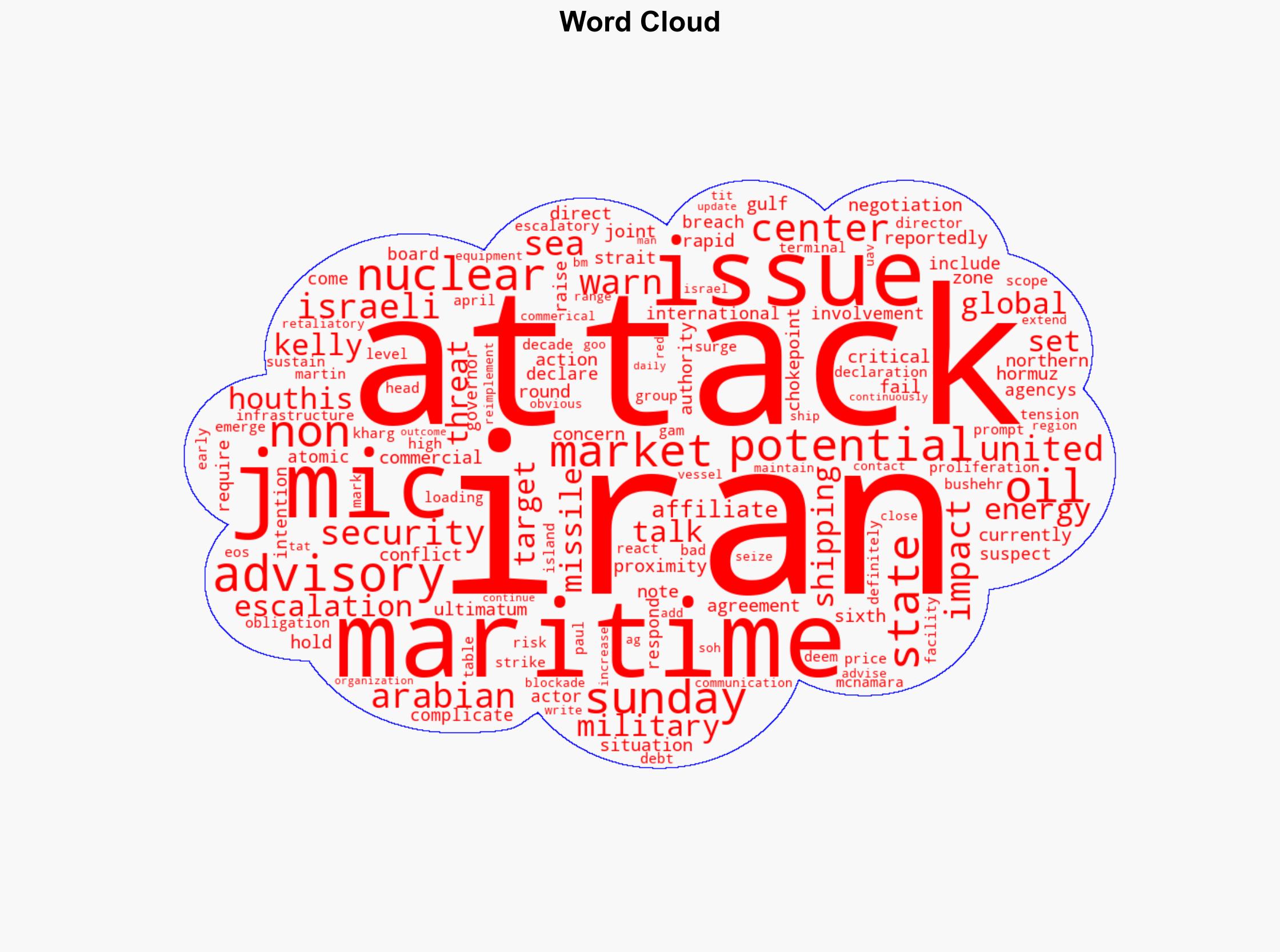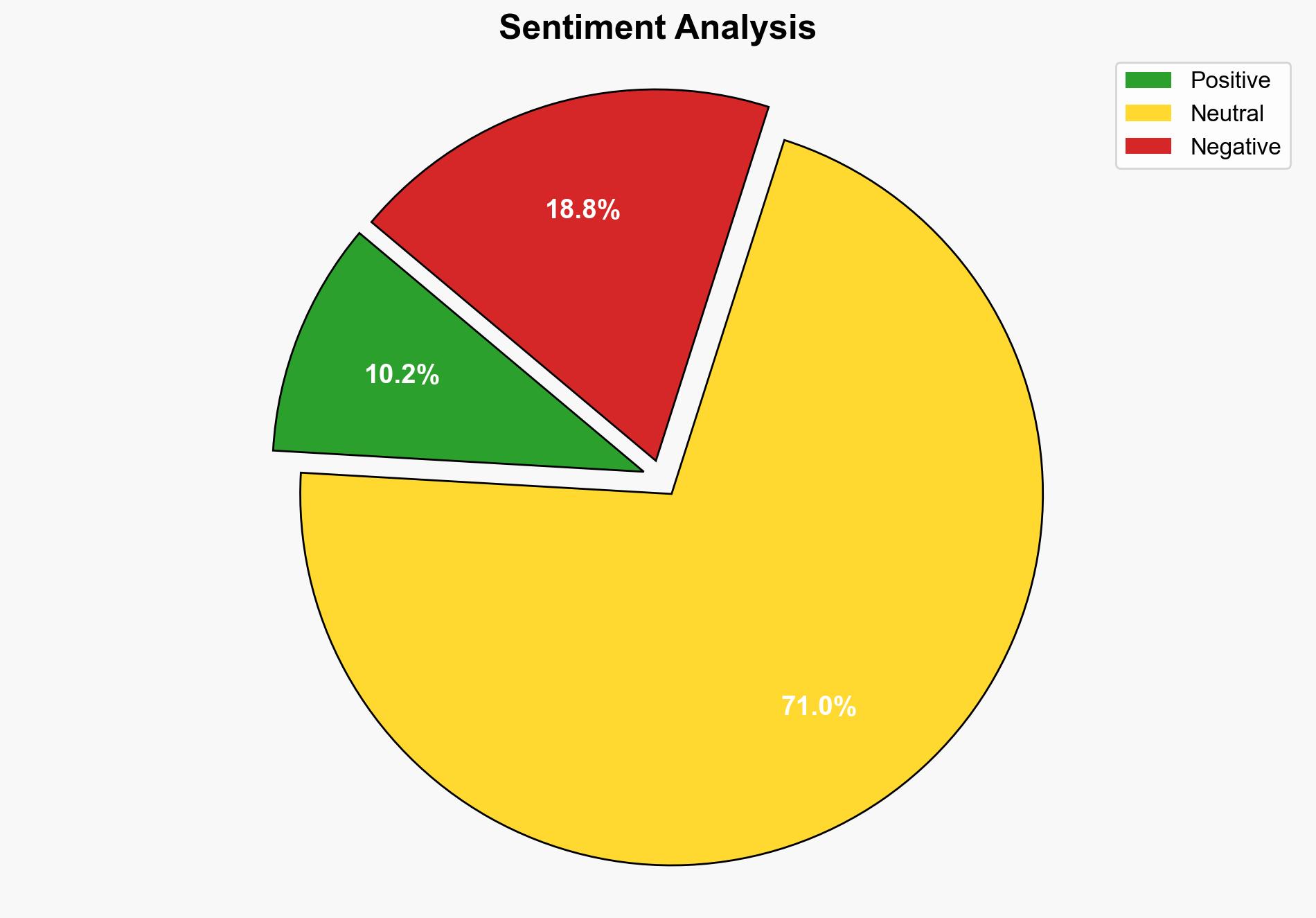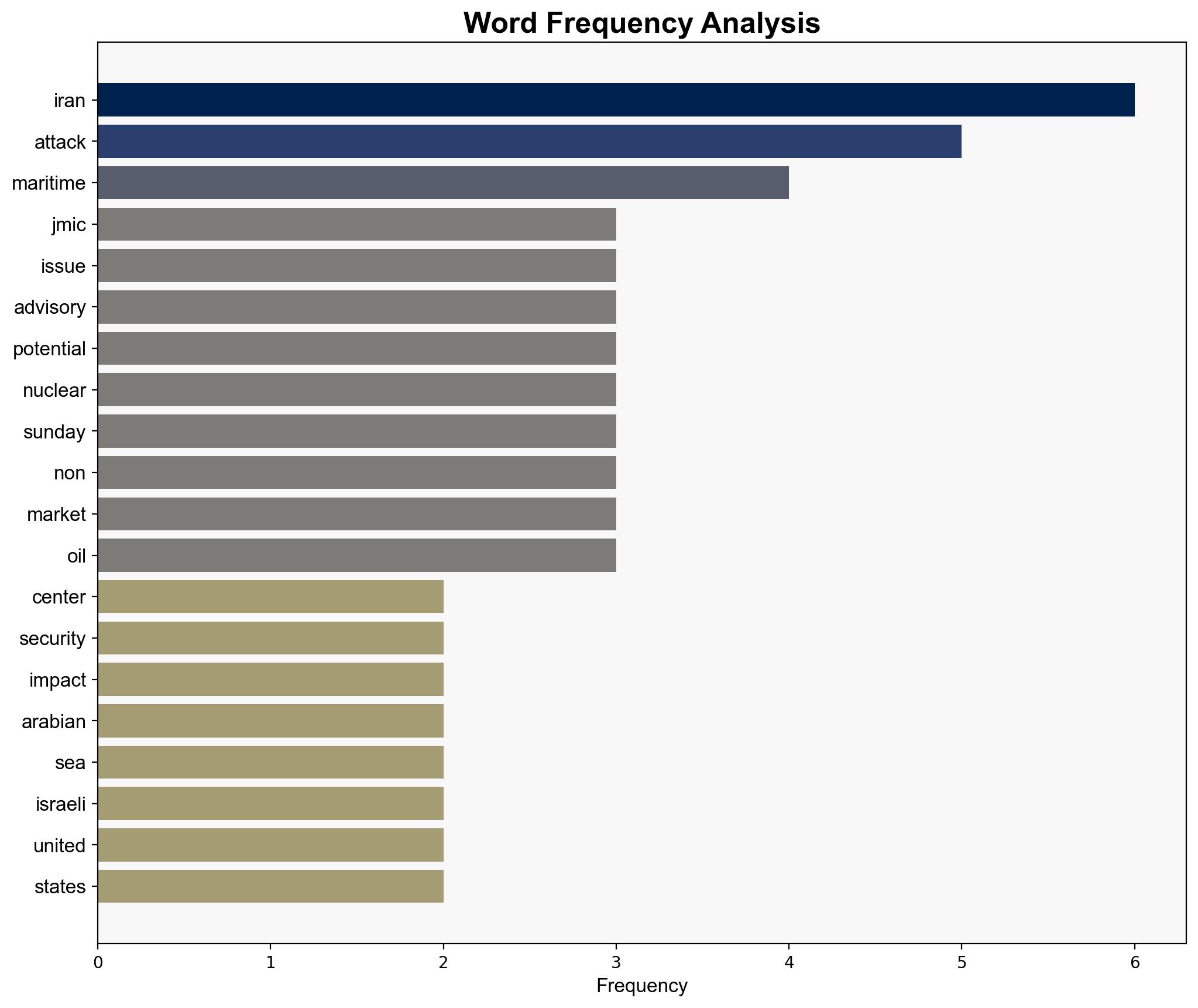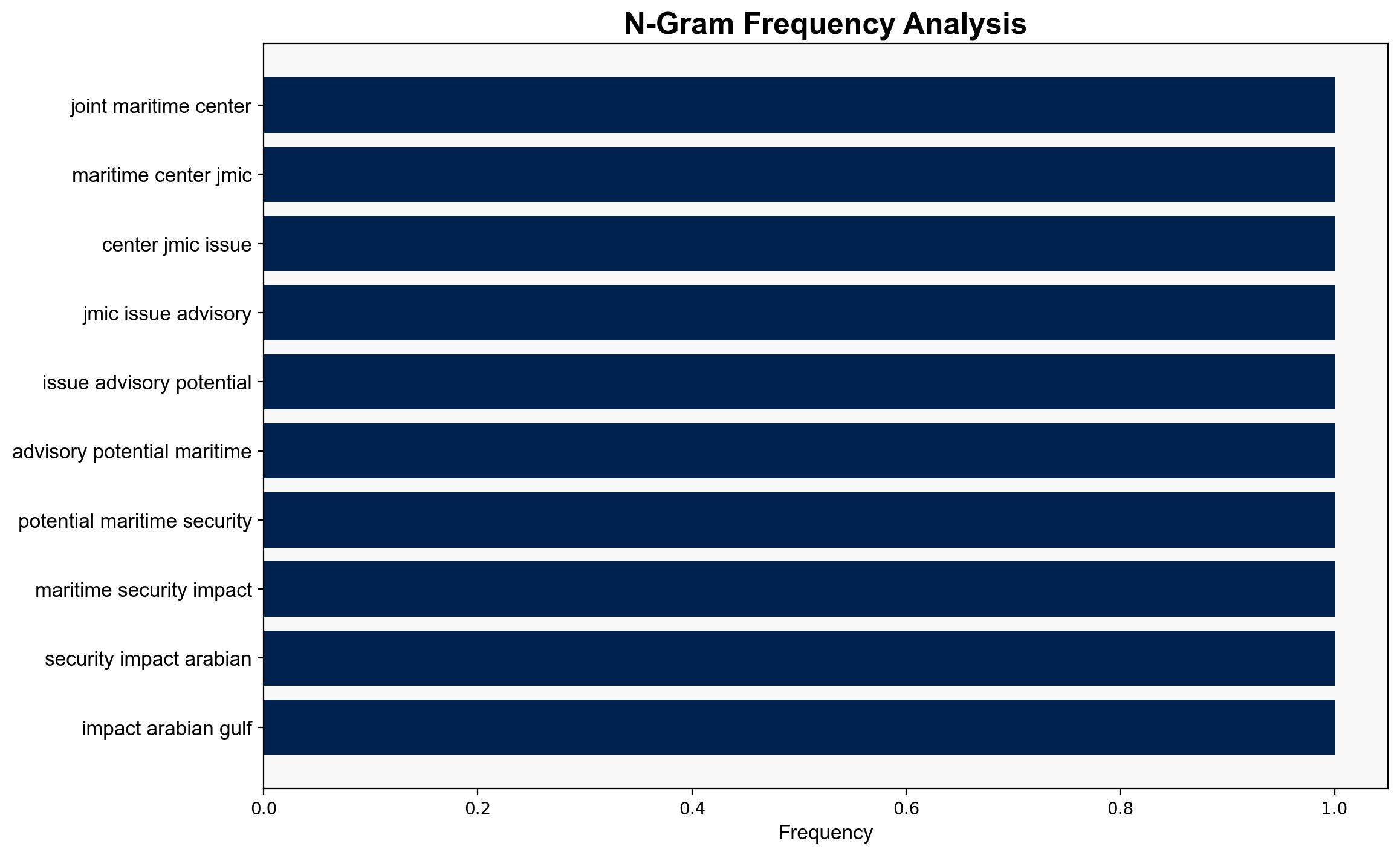Gulf Shipping on Edge as Israel Sets Nuclear Deal Deadline – gcaptain.com
Published on: 2025-06-12
Intelligence Report: Gulf Shipping on Edge as Israel Sets Nuclear Deal Deadline – gcaptain.com
1. BLUF (Bottom Line Up Front)
The current geopolitical tension in the Arabian Gulf, particularly around the Strait of Hormuz and the Northern Arabian Sea, is escalating due to Israel’s ultimatum regarding the nuclear agreement with Iran. This situation poses significant risks to maritime security, with potential impacts on global oil markets and regional stability. Immediate attention is required to mitigate risks associated with potential military actions and retaliatory measures by Iran and non-state actors such as the Houthis.
2. Detailed Analysis
The following structured analytic techniques have been applied to ensure methodological consistency:
Causal Layered Analysis (CLA)
Surface events include Israel’s ultimatum and the potential for military action. Systemic structures involve the strategic importance of the Strait of Hormuz as a critical maritime chokepoint. Worldviews reflect the ongoing geopolitical tensions between Israel and Iran, while myths pertain to the historical animosities and power struggles in the region.
Cross-Impact Simulation
Potential military actions by Israel could lead to retaliatory strikes by Iran, affecting neighboring states and disrupting global oil supply chains. The involvement of non-state actors like the Houthis could further destabilize the region, impacting maritime security.
Scenario Generation
Scenarios range from successful diplomatic negotiations leading to de-escalation, to military confrontations resulting in significant disruptions to global oil markets and increased regional instability.
3. Implications and Strategic Risks
The primary risks include disruptions to global oil supply, heightened military conflict in the region, and increased activities by non-state actors. These could lead to economic instability and broader geopolitical tensions. The potential for cyber-attacks on critical infrastructure and shipping lanes also poses a significant threat.
4. Recommendations and Outlook
- Enhance maritime security protocols and increase surveillance in the region to detect and mitigate threats promptly.
- Engage in diplomatic efforts to facilitate dialogue between Israel, Iran, and other stakeholders to prevent military escalation.
- Prepare contingency plans for potential disruptions in oil supply chains, including strategic reserves and alternative routes.
- Scenario-based projections suggest that the best case involves successful negotiations, while the worst case involves prolonged military conflict and economic disruption. The most likely scenario involves continued tension with sporadic incidents affecting shipping and oil markets.
5. Key Individuals and Entities
Paul McNamara, Martin Kelly
6. Thematic Tags
national security threats, cybersecurity, counter-terrorism, regional focus





